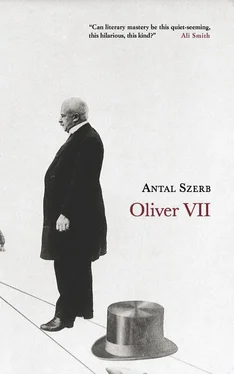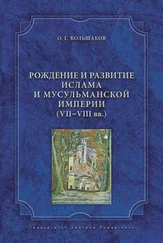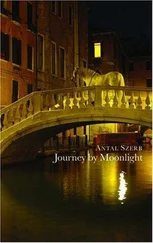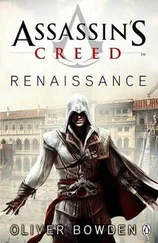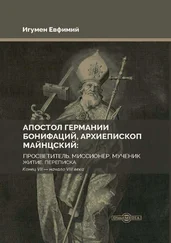That evening Honoré and Sandoval met Eisenstein in St Mark’s Square, where, like every other foreigner residing in the centre at the time, he sat over a black coffee listening to the music. He greeted them warmly, with a steady grin flickering around his lips, as if his habitual mockery had intensified a shade or two.
“It’s just to hide his naivety,” Sandoval reassured himself. But the bad feeling grew steadily worse.
After a brief conversation, Honoré boldly raised the subject. The Marchese San Germano was interested to know, he said, whether Eisenstein wanted to buy the painting, because someone from the Ministry of Culture had called on him on behalf of a famous foreign gallery who wanted to purchase it, and the Marchese, who came from a family of diplomats, was quite happy to let it go to the friendly foreign power concerned, only he felt he was now to some extent under an obligation to Mr Eisenstein and did not wish to part with it without asking him first.
Eisenstein’s grin was even wider than before.
“I know what this is about, gentlemen, I get the whole picture, and I’ve been expecting the honour of your call. Of course the Marchese is under no obligation towards me whatever. He can send it to any friendly or hostile foreign power he likes: they must be queuing up for it. But please, don’t get up so quickly; don’t leave me so suddenly.”
“Sir,” said Sandoval, “your cool-bloodedness astonishes me beyond words. You’re passing over the sort of chance that comes up once in a hundred years. Sir, a priceless Titian … do you realise what that is? If the news of it got out, the world’s top dealers would be marching in columns four men wide down the streets of Venice, sweeping all before them.”
“And you can have all this for a trifling hundred and fifty thousand!” Honoré added. “Just think: the old fool hasn’t yet realised what he’s got there, and that’s all he’s asking. You could get ten times that for it, easily.”
“But have I ever said I don’t want to buy it?” Eisenstein returned. “Of course I haven’t. I’ll take it very gladly, and hang it up back home as a souvenir of Venice. There’s just one condition. That Mlle Marcelle brings it in person to my lodging, at night. And of course not for a hundred and fifty thousand lire … where did you gentlemen get that idea from? It’s ridiculous! Let’s say, a round thousand, and then I’m being very, very generous.”
“But Mr Eisenstein!” Honoré snapped back. “You’re mad! A genuine Titian! … ”
Eisenstein slapped Honoré’s knee and grinned even more sarcastically than before.
“My dear sirs, I’m afraid you must have confused me with someone else. You seem to think, I don’t know why, that I’m some nouveau riche gold miner or spice merchant who can’t tell the difference between a Titian and a pile of crap. Allow me to present you with my card.”
The card read:
JAQUES EISENSTEIN
Proprietor
The Titian Gallery
New York
Fine art bought and sold
The next day St Germain, elegant and refined as ever, was sitting in the foyer of the Hotel Excelsior on the Lido, and it was there that he heard Honoré and Sandoval’s mournful tale. Oscar, Marcelle and the Major were also present. The bogus palazzo being now redundant, they had pitched camp on the Lido, hoping for something to turn up there. In those days everyone in Europe whose wealth had become a burden to them turned up sooner or later in the foyer of the Hotel Excelsior.
“So, let’s bury this Eisenstein business as another great idea that turned out badly,” the Count began dejectedly, but clearly intending to soothe. “We made an error, and to err is human. Let’s say no more about it. The man isn’t worth our thinking about. Do you know what this egregious Eisenstein’s father was? A dredger man. The common or garden owner of a boat for digging up mud. A St Germain could never sink so low as to fleece the progeny of a dredger. My illustrious ancestor, the legendary eighteenth-century St Germain, swindled only royalty.”
Marcelle listened with shining eyes, Honoré with mounting gloom.
“Ja, ja, Count, but what’s our next move? They’re going to kick us out of the hotel in a day or two.”
“You are right, my dear chap. I’ve sunk pretty low, it cannot be denied.” Then, in a suddenly changed, altogether unsoothing voice, he went on: “Nothing seems to work, my children. Nothing. It’s the dead season. Business is slack all along the line. I don’t know why we’re wasting our time here on the Lido.”
Oscar and the Major exchanged glances.
“Count,” Oscar began. He was blushing with embarrassment. “Since I’ve played a part in the disaster … it would be extremely difficult for me to remain a burden to you, at a critical time like this.”
“No more of that, my dear friend,” St Germain interrupted, with world-weary grandezza . “My distinguished ancestor bequeathed me a miraculous instinct verging on the prophetic. When I first set eyes on you and Mr Meyer, some primitive impulse stirred inside me, as Socrates’ daemon did in moments of crisis. No doubt my distinguished ancestor was speaking to me, whispering through the mists of time: ‘Old man, I see something fantastic in these two fellows’.”
Scarcely had St Germain uttered this remark than their fates underwent a truly decisive change.
A tall, bespectacled, clean-shaven man with a deeply lined face had appeared in the hotel entrance. The staff lounging in the foyer greeted him with the greatest deference. He went over to the reception desk and called out:
“If Paris wants to speak to me, I’m in the dining room.”
“Of course, Mr Coltor,” the maître d’hôtel replied, with a deep bow.
Hearing the name, Oscar shuddered and glanced helplessly at the Major and Sandoval. St Germain noticed, and was instantly all eyes and ears.
“Coltor?” he whispered to himself, entranced. “So that’s the great Coltor!”
Coltor had intended to cross the room, but his glance fell on Oscar (or the King, as we should perhaps now call him), and he stopped, rooted to the spot.
“Why is he staring at you?” the Count whispered excitedly. “Perhaps you know each other?”
“Of course not. I’ve never seen him, and I’ve no idea who he is,” Oscar protested in horror.
“Then why is he staring at you?”
“I don’t know. He seems to think I’m the King of Italy,” Oscar replied, with a forced laugh.
Coltor, believing that the laughter was aimed at him, smiled broadly and bowed in the direction of the King.
The King leapt up.
“Where are you going?” St Germain called out in dismay.
“It’s nothing … just that … I have to make a phone call … ” And he had already vanished.
But Coltor was even quicker. With a rapidity no one might have anticipated from so powerfully built a man, he overtook the fleeing King and declared:
“Your Highness, pardon me for troubling you, but there used to be a most satisfactory business arrangement between us … ”
The King’s nervousness increased visibly. Taking refuge in his role as Oscar he rounded on Coltor in exasperation:
“I don’t recall anything of the sort. You have mistaken me for someone else.”
Coltor’s normally impassive face turned to one of extreme agitation.
“But don’t you know me, Your Highness? Even in this place I always wear the Grand Cross of the Order of St Florian you did me the honour to bestow on me, with your own hand.” And he showed him the inside of his lapel.
“You are clearly under the impression … ”
“That I am speaking to Oliver VII, the former King of Alturia. And I am all the more delighted by this chance meeting as for some weeks now I have been searching high and low for Your Highness — in Europe, America and even Africa. I have never given up hope that that we might still conclude the agreement that was so regrettably frustrated by the Alturian revolution.”
Читать дальше
